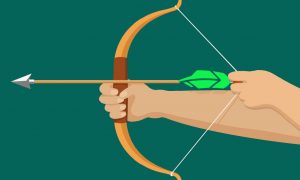If you are at all interested in investing, you’ve almost certainly heard of Robinhood. The investing app is a favorite among everyday traders who congregate in online forums like Reddit’s r/WallStreetBets, and has surpassed 13 million active users since its launch in 2013.
The Silicon Valley darling — which grew its following amid an investing surge during the COVID-19 pandemic and the ongoing cryptocurrency boom — is a commission-free trading platform, meaning users can invest in everything from ETFs to Dogecoin without going through a traditional brokerage.
Robinhood has seen its fair share of criticism. In early 2021, the company curtailed users’ ability to trade certain meme stocks like GameStop and AMC, generating the wrath of U.S. traders and lawmakers. Last December, Robinhood was fined $65 million, by the Securities and Exchange Commission (SEC) for allegedly misleading customers about one of its revenue sources. (Robinhood uses a practice called “payment order flow,” in which a brokerage firm sends customer orders to high-speed trading firms in return for cash payments).
The platform’s model allows users to make trades at no cost, but according to financial planner Tara Falcone, that comes at a steep price.
“It’s made many people think, ‘this is how you invest, this is how you build wealth,’ Falcone says. “And while trading individual stocks IS one way to build wealth, that’s not where most young people should be starting.”
As Robinhood gears up for its debut on the public market, here’s everything you need to know about the trendiest (and most controversial) financial app of the year — and whether or not you should use it.
Who uses Robinhood?
The app is popular among young, first-time investors, as evidenced by its game-like interface, including celebratory animations and push notifications when there are updates in the market.
It’s not limited to only Redditors taking on risky investment moves. If you do some proper research, Robinhood can, at the very least, serve as a good introduction to investing. But no matter how savvy you are at picking stocks, you’re highly unlikely to beat the market over the long term. (Which is why Money has always advised new investors to start with passively-managed index funds with proven track records instead.)
Day traders will always try to game the system — even if it’s usually next to impossible to make boatloads of cash that way. And since Robinhood lets anybody with a bank account buy and sell risky financial products, it’s no surprise that more and more people are opening up accounts.
How to invest with Robinhood (the right way)
Before you download any sort of investing app, figure out what your motivation is, Falcone suggests. Are you doing this to make some quick cash? Because you have Reddit-induced FOMO? Or because you want to put your money to work responsibly, and are prepared to think about long-term strategies?
“That should help you put blinders on to what you might be seeing on social media or hearing from your friends,” Falcone says. “If [certain] types of stock don’t fit into your strategy, then you should immediately know to ignore those suggestions.”
If you’re approaching this through a financial planning lens, make sure you’ve already paid off all your credit card and high-rate consumer debt. You should also be contributing enough to your employer-sponsored plan to maximize any potential match benefit — that’s an immediate, guaranteed return on your investment that you can’t expect from the stock market.
“Once you are on track for retirement and have additional cash to invest, you may want to consider adding some individual stocks to your portfolio,” Falcone says. “However, it is recommended to secure your financial future with diversified securities first … either through your employer’s plan or an IRA.”
You’ll also want to set some investing goals before you start trading, Falcone says. Maybe you want to invest to help pay for a new couch, a trip to the Bahamas, an engagement ring, or a downpayment on a future home.
“Determine how much that goal will cost, how long of a time horizon you have to achieve it, how much money you have to invest toward it today, and how much you’ll have to contribute on a weekly or monthly basis to reach that goal using a reasonable expected return for your time horizon,” Falcone says.
How to start investing with Robinhood
Investing through Robinhood is as easy as opening an account. All you need is to be 18 years or older, have a valid Social Security number, and a U.S. address.
If you’re new to investing, start with a small amount of money you’re OK with losing, and stick to stocks and ETFs.
Falcone suggests creating a diversified portfolio with at least fifteen stocks across different industries and company sizes that you’ve already done your due diligence on. Thanks to fractional shares, you can start investing with just a few dollars.
As you dip your toe in, Falcone suggests getting familiar with investing news sites (like Money.com!) and timely content from verified financial planners like herself. Morningstar.com is another good resource for staying up to date on fund performance, investment strategy, and fees.
You can also use a stock market simulator to create a “practice portfolio”, which will help you learn how the market fluctuates over time, and how to make healthy investing habits (like not checking your account a million times a day).
In other words: Learn to walk before you run, and take the time to understand what you’re actually buying and selling.
The post A Beginner’s Guide to Investing With Robinhood appeared first on Money
Original source: Money






